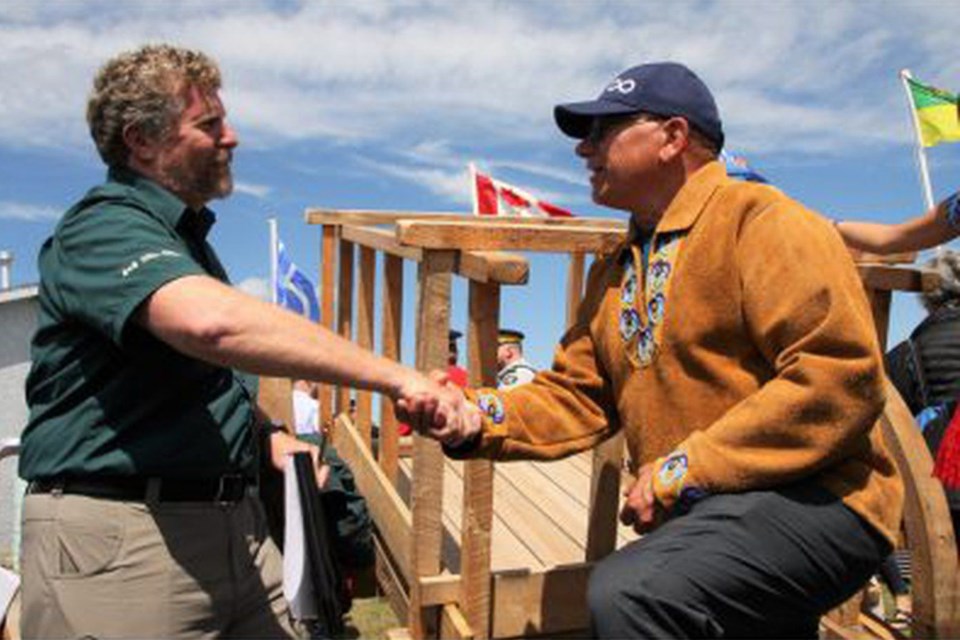BATOCHE — The transfer of nearly 700 hectares of land at Batoche to the Metis Nation-Saskatchewan is part of a "tangible" step towards reconciliation, Metis Nation-Saskatchewan's president said.
The land, situated on the west side of the Batoche National Historic Site, is part of a sacred place that holds deep significance for the Metis. The Battle of Batoche took place during the 1885 Northwest Resistance, ultimately leading to Louis Riel's surrender. Riel was eventually captured and hanged, taking a stand for self-determination and the belief in self-governance.
On July 22, with the 50th annual Back to Batoche Days well underway, the federal government and MN-S announced jointly that Parks Canada was transferring approximately 690 hectares of land at Batoche to MN-S. The land transfer has been worked towards for years. In 2020, MN-S and Parks Canada signed a deal over the future management of the Batoche National Historical Site. That 2020 deal fell under a broader framework the federal government and MN-S signed in 2018.
"The Batoche grounds have always been important to our Metis citizens, our history and the resistance," Metis Nation-Saskatchewan president Glen McCallum said.
For the visitors and dignitaries present at the site, Friday’s announcement was a cause for celebration during the milestone gathering.
"We are no longer a landless people," said Bruce Dumont, former president of the Metis Nation-British Columbia.
Dan Vandal, the Minister of Northern Affairs, said the land transfer is an important step forward for the federal government and Metis people in Canada — as well as something he feels passionately about on a personal level.
"A lot of my ancestors … fought at Batoche," Vandal said. "They were part of the historical resistance against the Canadian government. And today, as a minister with the Canadian government — of course, our values have changed tremendously in that 137 years — we now realize that there is a great opportunity to make amends and move forward in partnership.
"This is reconciliation."
This is some of the first land owned by the Metis government in Saskatchewan, McCallum noted, though the Back to Batoche festival grounds were transferred to Metis ownership in 1996. Going forward, McCallum has big plans and dreams for the future of the site. He’d like to build a youth centre, get the old ferry operating again, and eventually host a legislative building at Batoche.
"There is a deep connection for us at Batoche," he said. "We, as Metis people, will determine the best use of this land that will respect our ancestors' ultimate sacrifice in how we will honour and uphold their vision.
"Our past leaders who dreamed of this day aren’t with us anymore, but will always be remembered. We celebrate in their memory."
McCallum said MN-S has been working with the federal government for five years to see this land transfer through.
"It just came naturally," he said. "If you look at Batoche and what's here, and the history of Batoche in regards to Riel and the resistance … well, it only stands to reason."
Vandal said that "the significance of Batoche to our Metis ancestors who lived and flourished and fought here … is something we feel deep in our bones."
MN-S will continue working with Parks Canada to co-manage the historic site.
"We always need each other in order to build a strong foundation," McCallum said.
Signing the land transfer documents on Friday, McCallum said he was thinking about Metis history, and especially "the people who fought hard to be able to be recognized with self-determination and the right to self-govern."


.JPG;w=120;h=80;mode=crop)

